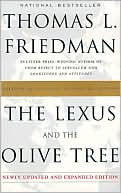Category Books
- Fiction Books & Literature
- Graphic Novels
- Horror
- Mystery & Crime
- Poetry
- Romance Books
- Science Fiction & Fantasy
- Thrillers
- Westerns
- Ages 0-2
- Ages 3-5
- Ages 6-8
- Ages 9-12
- Teens
- Children's Books
- African Americans
- Antiques & Collectibles
- Art, Architecture & Photography
- Bibles & Bible Studies
- Biography
- Business Books
- Christianity
- Computer Books & Technology Books
- Cookbooks, Food & Wine
- Crafts & Hobbies Books
- Education & Teaching
- Engineering
- Entertainment
- Foreign Languages
- Game Books
- Gay & Lesbian
- Health Books, Diet & Fitness Books
- History
- Home & Garden
- Humor Books
- Judaism & Judaica
- Law
- Medical Books
- New Age & Spirituality
- Nonfiction
- Parenting & Family
- Pets
- Philosophy
- Political Books & Current Events Books
- Psychology & Psychotherapy
- Reference
- Religion Books
- Science & Nature
- Self Improvement
- Sex & Relationships
- Social Sciences
- Sports & Adventure
- Study Guides & Test Prep
- Travel
- True Crime
- Weddings
- Women's Studies
The Lexus and the Olive Tree: Understanding Globalization » (Reprint)

Authors: Thomas L. Friedman
ISBN-13: 9780385499347, ISBN-10: 0385499345
Format: Paperback
Publisher: Knopf Doubleday Publishing Group
Date Published: May 2000
Edition: Reprint
Author Biography: Thomas L. Friedman
Occasionally blunt, often educational, but never boring, Thomas L. Friedman is among the best known and respected analysts of the Middle East. A three-time Pulitzer winner, his books and column for the New York Times take a no-nonsense, authoritative approach to complex global issues.
Book Synopsis
As the Foreign Affairs columnist for The New York Times, Thomas L. Friedman has traveled to the four corners of the globe, interviewing people from all walks of contemporary life — Brazilian peasants in the Amazon rain forest, new entrepreneurs in Indonesia, Islamic students in Teheran, and the financial wizards on Wall Street and in Silicon Valley.
Now Friedman has drawn on his years on the road to produce an engrossing and original look at the new international system that, more than anything else, is shaping world affairs today: globalization.
His argument can be summarized quite simply. Globalization is not just a phenomenon and not just a passing trend. It is the international system that replaced the Cold War system. Globalization is the integration of capital, technology, and information across national borders, in a way that is creating a single global market and, to some degree, a global village.
You cannot understand the morning news or know where to invest your money or think about where the world is going unless you understand this new system, which is influencing the domestic policies and international relations of virtually every country in the world today. And once you do understand the world as Friedman explains it, you'll never look at it quite the same way again.
With vivid stories and a set of original terms and concepts, Friedman shows us how to see this new system. He dramatizes the conflict of "the Lexus and the olive tree" — the tension between the globalization system and ancient forces of culture, geography, tradition, and community. He also details the powerful backlash that globalization produces among those who feel brutalized by it, and he spells out what we all need to do to keep this system in balance.
Finding the proper balance between the Lexus and the olive tree is the great drama of the globalization era, and the ultimate theme of Friedman's challenging, provocative book — essential reading for all who care about how the world really works.
Thomas L. Friedman is one of America's leading interpreters of world affairs. Born in Minneapolis in 1953, he was educated at Brandeis University and St. Antony's College, Oxford. His first book, From Beirut to Jerusalem,won the National Book Award in 1988. Mr. Friedman has also won two Pulitzer Prizes for his reporting for The New York Times as bureau chief in Beirut and in Jerusalem. He lives in Bethesda, Maryland, with his wife, Ann, and their daughters, Orly and Natalie.
